Nitrogen Vs. Air Filled Tires Which is Better? Engineerine

Nitrogen Vs Air In Tires Nitrogen-filled tires lose pressure more slowly due to the larger molecule size, reduce oxidation due to the lack of oxygen, improve fuel efficiency, and may prolong tire life. Air-filled tires are more accessible, affordable, compatible with all tires, and allow for easy top-offs and maintenance.
Is It Better To Put Nitrogen In Your Tires Instead Of Air?

The results show that nitrogen does reduce pressure loss, but the reduction was only a 1.3-psi difference from air-filled tires over an entire year. "Our test showed that while nitrogen has.
Nitrogen vs Air In Tyres
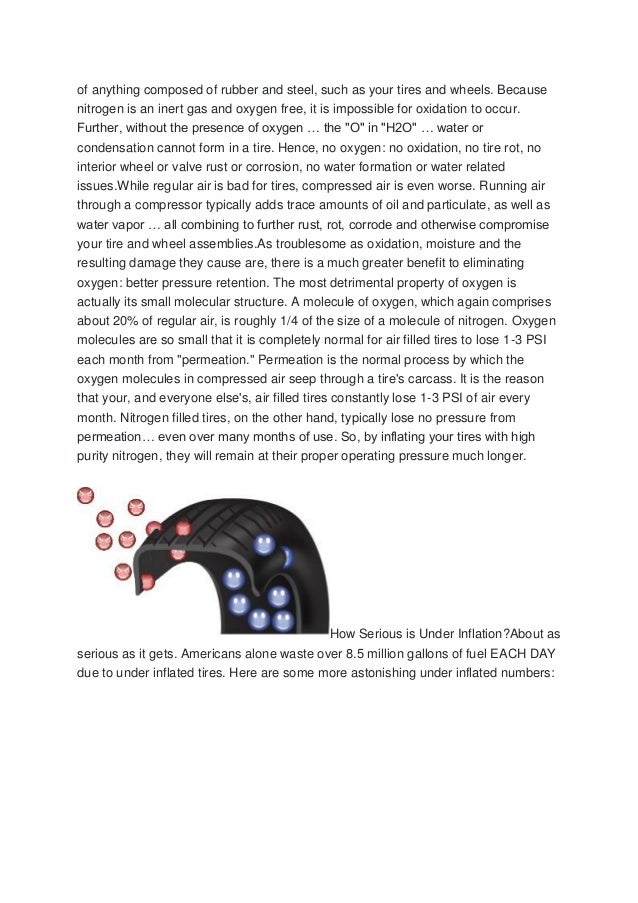
Feb 13,2017 When it comes to your trusty vehicle, you're constantly asking important questions like, "Is it time for an oil change? Do my tires need to be rotated?" Those are both important questions, but here's another one to consider: "Should my tires be filled with nitrogen or air?"
Nitrogen Vs Air In Tires What's The Difference?
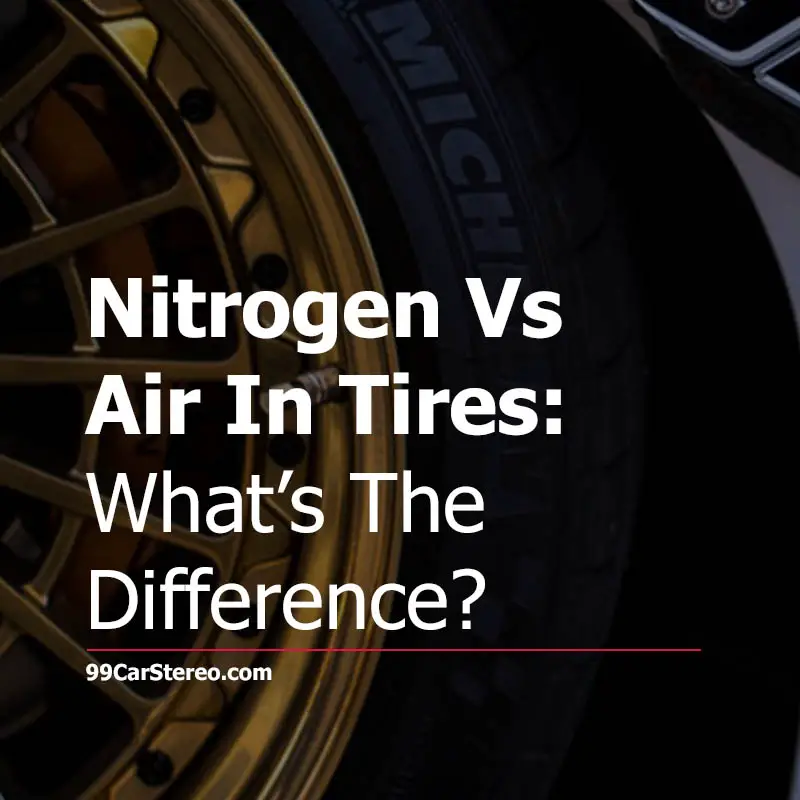
Fuel Economy: No Difference Although many tire shops might tell you nitrogen-filled tires maintain better fuel economy than regular air, there simply isn't any evidence to support this claim. According to the EPA, the major contributing factor to reduced fuel economy with tires is air pressure.
Nitrogen Vs. Air In Tires 10 Differences

Car Advice Nitrogen in Tires: Pros and Cons To keep the drive comfortable in various day-to-day scenarios, passenger vehicle tires are filled with air, or sometimes nitrogen. We'll break.
Nitronomics
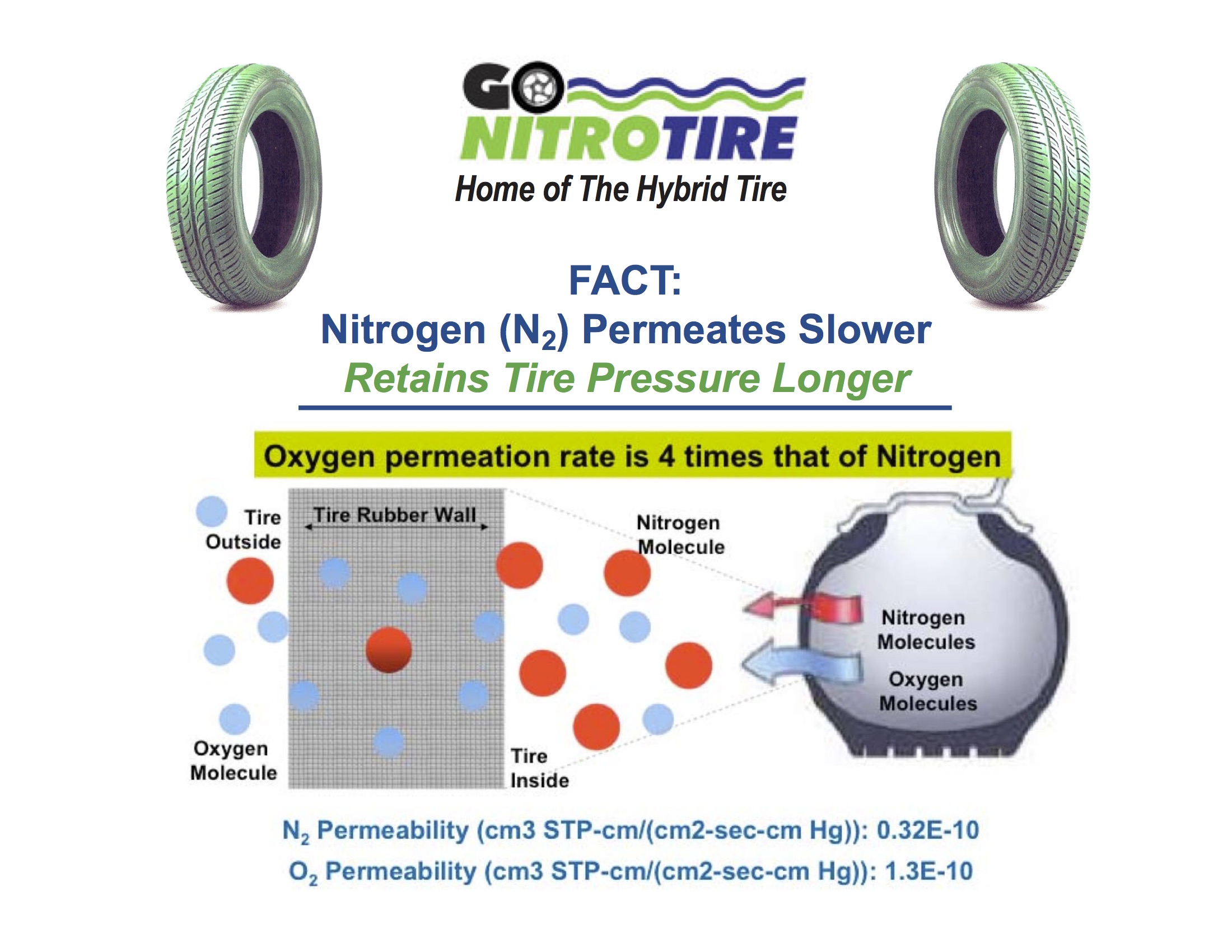
Another great benefit of nitrogen is that it oxidizes less than air, making it ideal if you're putting together custom tire and wheel packages. Over time, the oxidative properties of air (oxygen) break down the rims finish in the "bead area" and may lead to air leakage around this area of the rim and tire package.
Air Vs Nitrogen In Tires Off Topic Page 2 DIY Chatroom Home

The most prominent benefit of nitrogen is a more consistent pressure, which is important to keep your tires in good shape. Normally, the air will seep out the tires over time, which reduces the pressure. However, since the nitrogen molecule is bigger than normal air, they escape the tire at a slower speed, leading to the difference in pressure.
Tyre Vs Tire
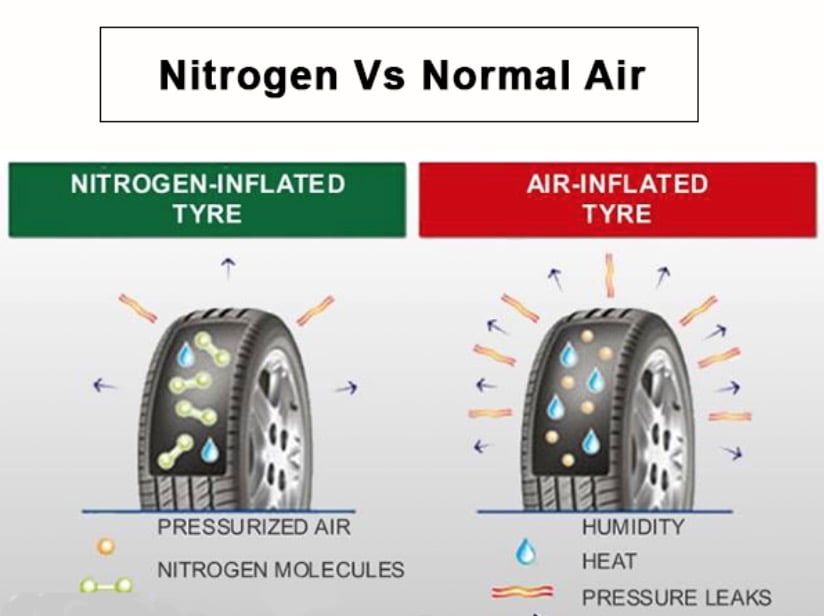
For tire inflation purposes, the nitrogen offered by some tire dealers is typically around 99 percent pure nitrogen. One perceived benefit of using nitrogen in your tires is that nitrogen should theoretically lead to more consistent tire inflation pressure over time, as nitrogen is slower to escape between the tire's structure than oxygen.
Nitrogen vs. Air in Tires Which Is Better? Tire Outlet

A few decades ago, the racing industry stumbled across the benefits of nitrogen vs air in tires. They found that nitrogen was less-affected by temperature than normal atmospheric air. Atmospheric air is made up of a mixture of gases, about 78 percent N 2, 21 percent O 2 and 1 percent trace gases, such as H 2 O, Ar, CO 2, Ne, He and CH 4.
Are Airplane Tires Solid? What Are Tires filled With? (Nitrogen Vs

Nitrogen vs. Air In Your Tires Is Nitrogen Better Than Air For Your Tires? You may have heard that filling your tires with nitrogen is better and/or more reliable than regular compressed air. We explain the difference and weigh the benefits for you. Did you know that we perform free air checks with every tire inspection?
NowCar Let’s Settle This Nitrogen vs. Air Debate

Longer Tire Life In terms of chemistry, nitrogen is a "bigger" gas molecule than oxygen; this slight chemical difference makes it harder for air to leak from your tires. Nitrogen gas escapes car tires less easily thanks to its ability to maintain its chemical structure without breaking down.
Nitrogen vs Air in Car Tyres TyresNServices

With nitrogen, your tyres stay at the right pressure, reducing rolling resistance and saving on fuel costs over the long haul. 4. Reduced Corrosion. Nitrogen lacks the moisture and corrosive elements present in regular air. This absence helps extend the life of your rims and valves, reducing maintenance expenses. 5.
Nitrogen VS Air in Tires Advantages and Disadvantages
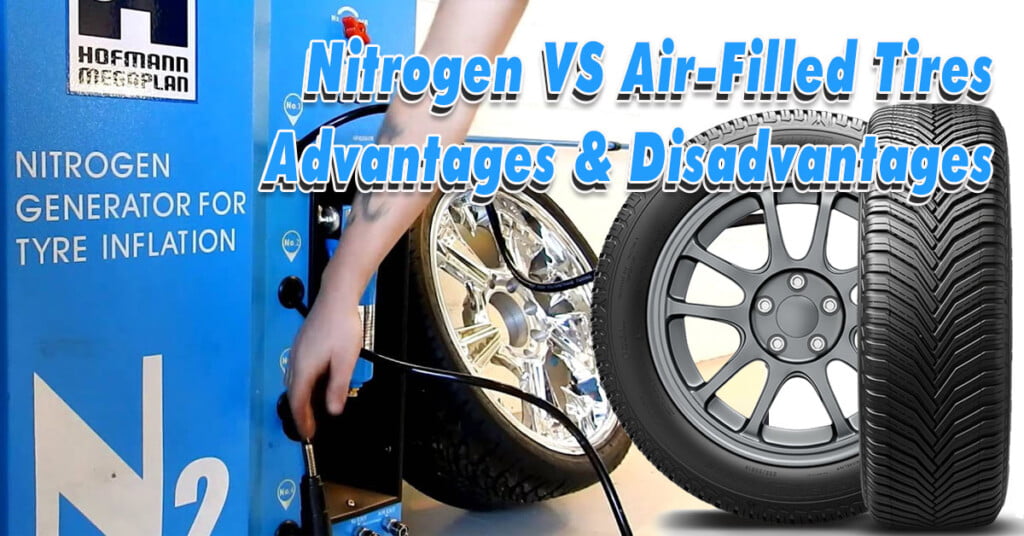
This is why nitrogen is used to fill airplane tires, as temperatures can change dramatically between takeoff and landing. Since nitrogen does not completely eliminate temperature-related pressure changes under normal driving conditions, it is of little benefit to vehicle owners who properly maintain their tires.
Is Putting Nitrogen in Tires Still Worth It? CARFAX

Nitrogen vs. Air in Tires Advantages and Disadvantages Nitrogen in Tires Advantages We start the discussion by looking at the pros and cons of nitrogen-filled tires. Using nitrogen has plenty of advantages over standard air. They come from nitrogen's large molecular structure, which prevents it from seeping out of the tires.
Nitrogen vs. Air Which is Better for Your Tires? Oklahoma Technical
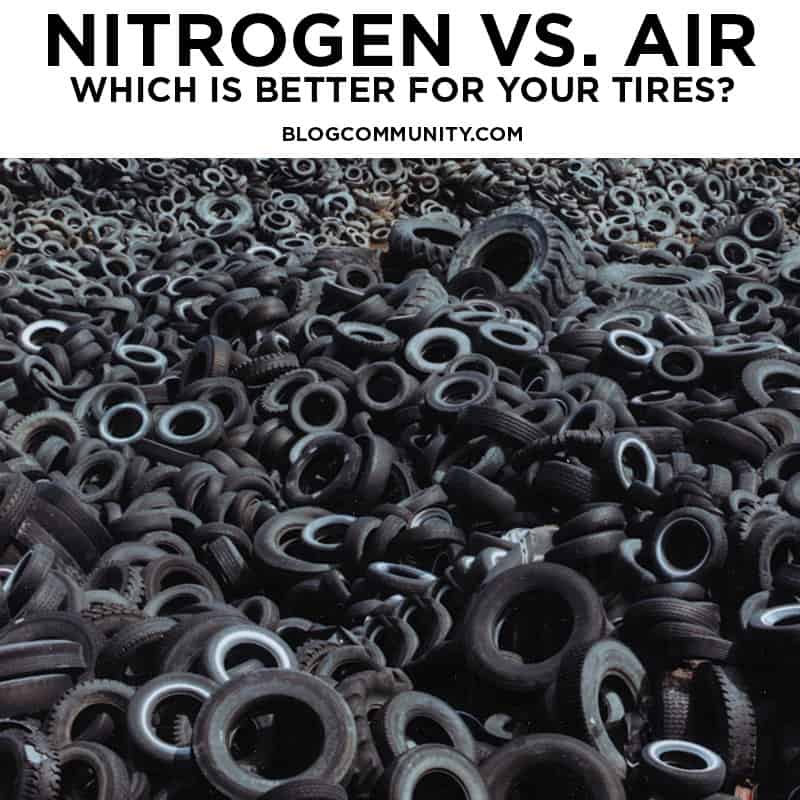
Using Nitrogen in Tires. So why is nitrogen used? In its pure form, nitrogen has been used primarily because it doesn't support moisture or combustion. Nitrogen is an inert (non-flammable) gas - basically, nothing more than dry air with oxygen removed. In fact, ambient air contains about 78% nitrogen, 21% oxygen and 1% miscellaneous gas.
Why Race Teams Run Nitrogen Gas in Their Tires CalOx
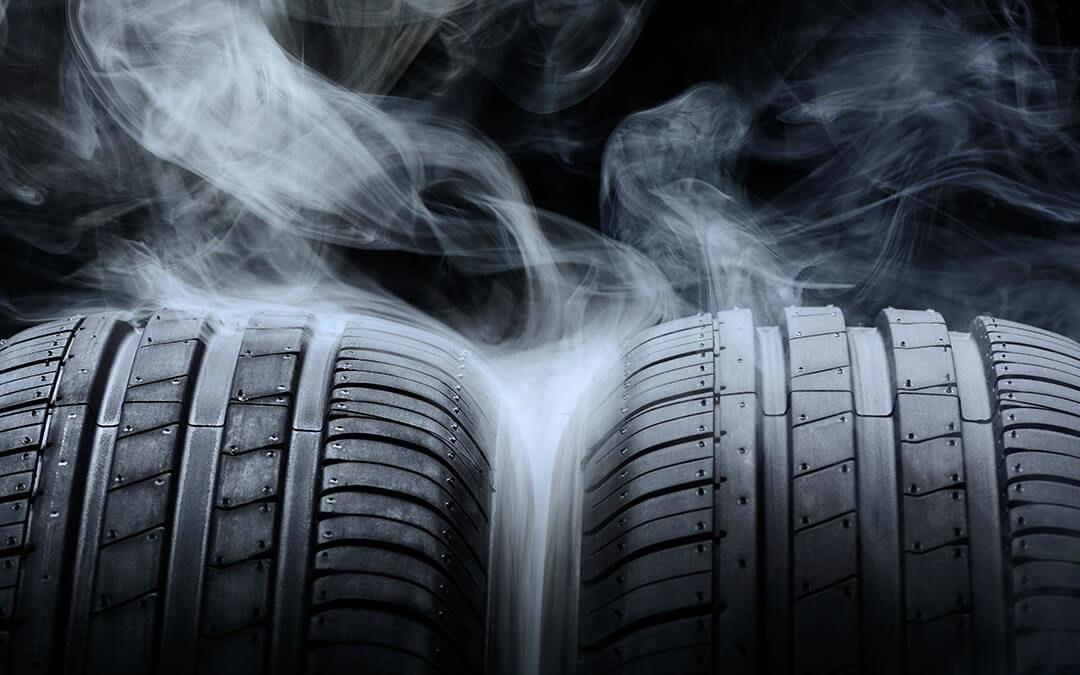
Each has advantages and drawbacks. In everyday use, nitrogen offers one key advantage over air: With nitrogen, tire pressure fluctuation is reduced. This stable air pressure can help ensure that your car handles at its very best. It may also help you maximize your car's fuel economy, and it could ultimately help to optimize the life of your tires.